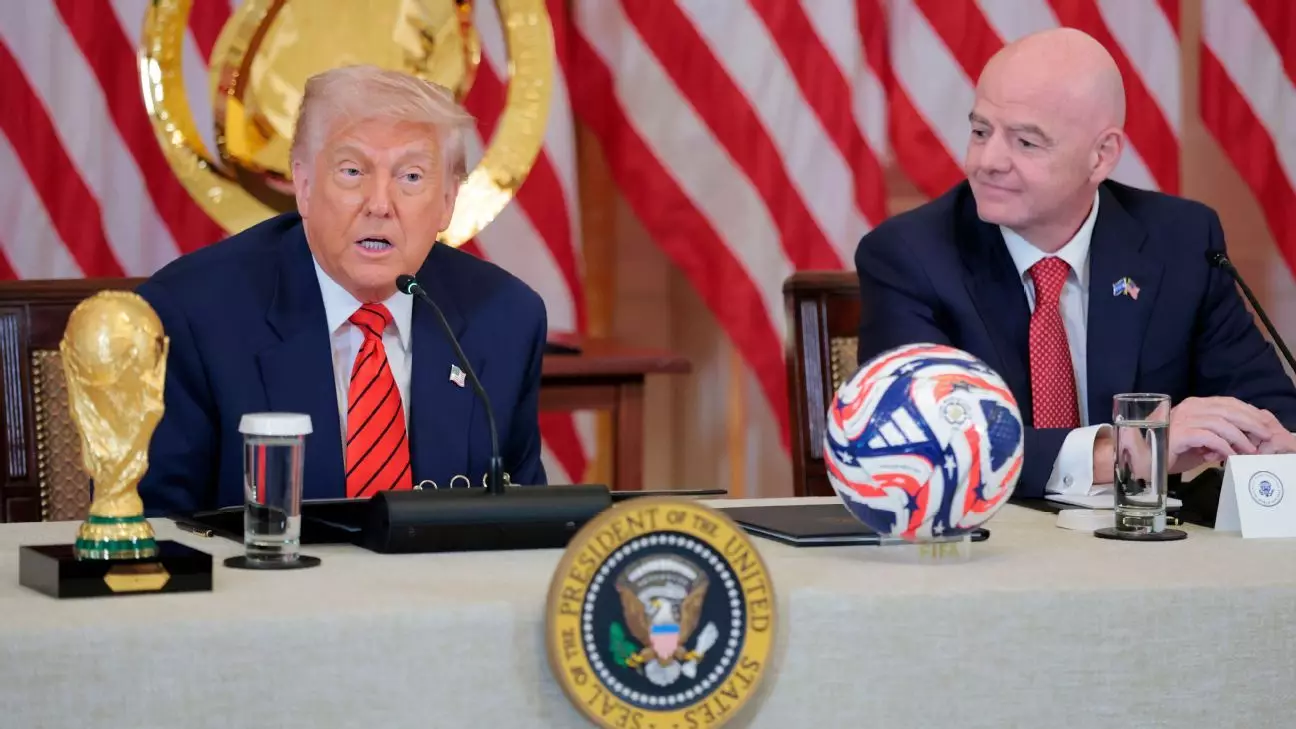The world of sports, particularly football, has long been viewed as a unifying force that transcends cultural and political boundaries. The upcoming 2026 World Cup, co-hosted by the United States, Canada, and Mexico, embodies this concept in a powerful way. Former President Donald Trump recently suggested that the allure of competing in this prestigious tournament might serve as a compelling incentive for Russia to halt its aggressive actions in Ukraine. This notion raises an intriguing question: Can the realm of sports genuinely act as a catalyst for peace?
The violent conflict between Russia and Ukraine has led to severe consequences, not only for the nations directly involved but also for the global community. As FIFA and UEFA imposed bans on Russian national teams from international competitions following the invasion, it sheds light on sports’ role in geopolitics. The idea that the allure of participating in the World Cup could induce a nation to reconsider its actions illustrates sports’ potential as a tool for negotiation and conflict resolution.
Constraints of Political Decisions
While Trump’s comments may have a certain idealistic resonance, they also underscore a fundamental disconnect between the aspirations of the sports world and the harsh realities of international politics. The notion that a sporting event could be the turning point in a war that has tragically resulted in thousands of deaths weekly seems overly simplistic. True, sports can lay the groundwork for dialogue and foster connections between rival factions, but they are not a panacea for deeply entrenched political issues or national grievances.
Infantino’s acknowledgment that Russia’s exclusion is temporary and contingent upon the cessation of hostilities reflects the complicated relationship between sports and state behavior. The hope expressed by FIFA’s president that peace might emerge can be seen as optimistic, yet it raises skepticism about whether football’s governing bodies are equipped to be arbiters in complex geopolitical disputes.
The Illusion of Incentive
Further complicating such a perspective is the potential misinterpretation of the idea of incentive. Suggesting that the opportunity to compete in the World Cup could spur Russia into peace negotiations risks trivializing the profound suffering experienced by those impacted by the conflict. War isn’t merely a game to be won or lost; it’s a humanitarian crisis that demands empathy and profound political will, far beyond what can be achieved through a sporting event.
Russia’s absence from competitive play since 2021, with a series of friendly matches yielding mixed results, illustrates the disconnect between sporting success and national legitimacy on the international stage. The reality is that the dynamics of international relations are affected by broader societal issues that cannot be solved through the lens of competition or rewards.
The Role of Sports in Dialogue
Despite these challenges, the potential for sports to serve as a diplomatic bridge should not be wholly dismissed. History has shown moments where the world of sports has fostered dialogue, such as the “Ping Pong Diplomacy” between the United States and China in the 1970s. However, for this to happen in a contemporary context like the Russia-Ukraine conflict, it would require a fundamental shift in relationships between the nations involved.
As we move closer to the 2026 World Cup, the hope is that this conversation surrounding sports and peace will not merely be rhetoric. Instead, it should inspire renewed efforts that leverage international sporting events to promote understanding and cooperation while acknowledging the complexities and responsibilities that exist within the geopolitical landscape. The true test will be if leaders like Trump can transform lofty sentiments into concrete policies that prioritize peace over competition.

